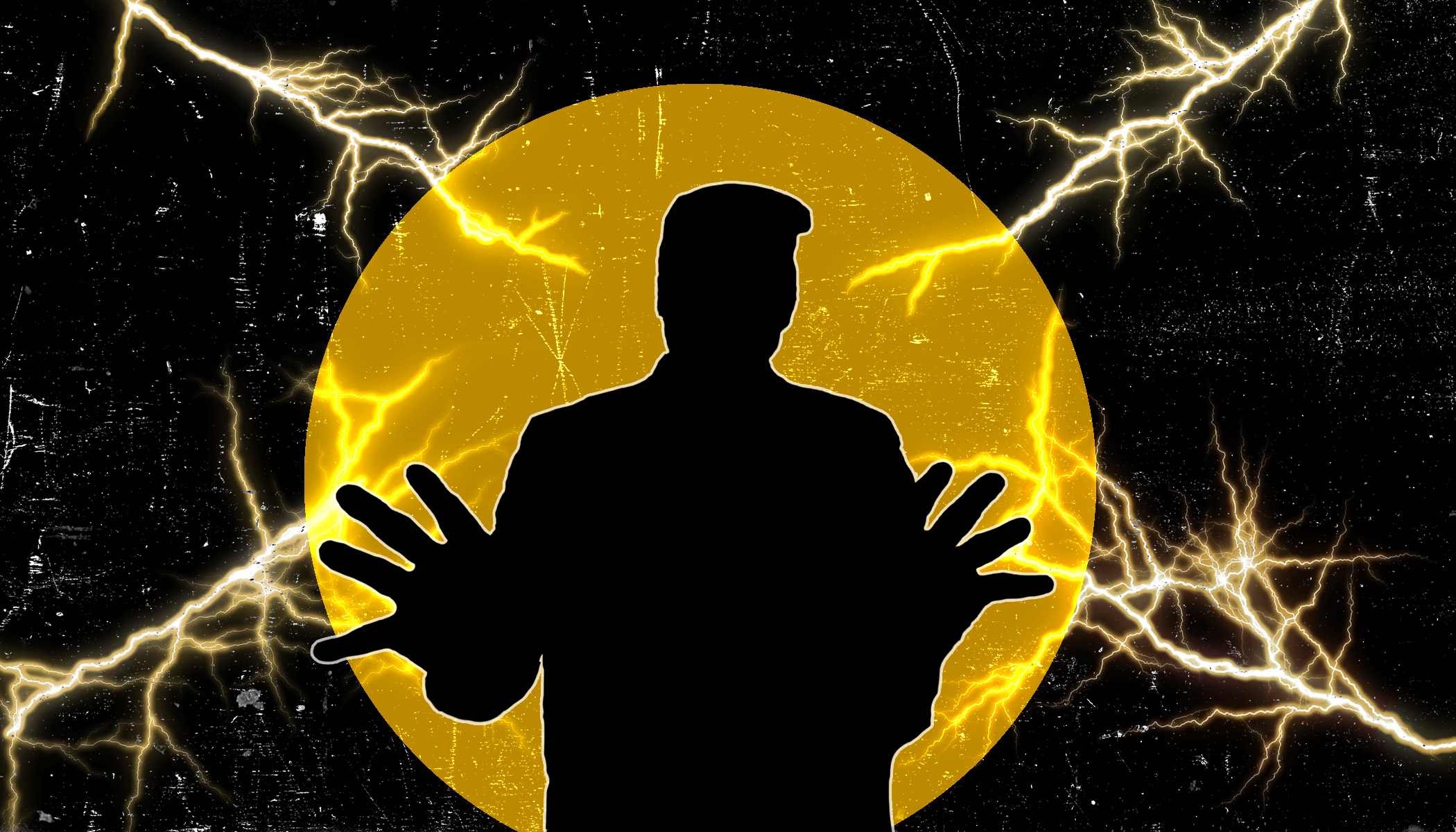Donald Trump's impotent tyranny
How the president's pandemic orders paradoxically mix overreach and impotence


A free daily email with the biggest news stories of the day – and the best features from TheWeek.com
You are now subscribed
Your newsletter sign-up was successful
Everything is a show with Donald Trump.
He was never really a successful businessman — he just played one on TV. Now, as president, a similar pattern has emerged: Trump wants to perform the role of autocrat in front of TV cameras, but cannot or will not act effectively to protect the country from the economic and health challenges brought on by the COVID-19 pandemic. He's a Potemkin strongman.
The latest example of this phenomenon came over the weekend. With the House and Senate hamstrung on a pandemic relief bill, President Trump announced he would act unilaterally — signing executive orders to extend unemployment benefits, continue a moratorium on evictions, defer payroll taxes, and pause student loan payments.
The Week
Escape your echo chamber. Get the facts behind the news, plus analysis from multiple perspectives.

Sign up for The Week's Free Newsletters
From our morning news briefing to a weekly Good News Newsletter, get the best of The Week delivered directly to your inbox.
From our morning news briefing to a weekly Good News Newsletter, get the best of The Week delivered directly to your inbox.
"I'm taking executive action," he said. "We've had it. And we're going to save American jobs and provide relief to the American workers."
Trump's executive orders combined two paradoxical elements: overreach and impotence.
Let's take overreach first. As The Washington Post noted, Trump's orders "attempt to wrest away some of Congress's most fundamental, constitutionally mandated powers — tax and spending policy." The Constitution plainly gives Congress, not the president, taxing and spending power. One Republican senator called Trump's orders "unconstitutional slop."
But this isn't the first time Trump has tried to usurp the legislative branch's financial prerogatives: After his failed government shutdown at the start of 2019, he signed an emergency decree diverting defense funds to build his border wall with Mexico. That is plainly unconstitutional, but the courts have so far let him proceed, drifting leisurely toward a final question on the matter. Their failure to act in due haste has given the president an opening for additional transgressions.
A free daily email with the biggest news stories of the day – and the best features from TheWeek.com
Perhaps the sidestepping of Congress and the Constitution would be understandable if Trump's acts would actually help Americans trying to survive the pandemic and its economic fallout. After all, President Lincoln disregarded habeas corpus during the Civil War, and Americans mostly love him.
Then again, Lincoln won the Civil War. Trump is losing the pandemic. And his executive orders probably won't help him win it. There is less here than meets the eye. Let's take them one-by-one:
All of this means that President Trump is undermining the constitutional order — again — but will probably have little to show for it.
This is in keeping with his now-tedious habit of prizing appearance over substance and ratings over effective action, his love of claiming "total authority" while often leaving states and cities to their own devices as they battle the coronavirus. Trump's attempts at tyranny do nothing to solve the country's problems, but they do compound the crisis of American democracy.
It's the worst of both worlds.
Joel Mathis is a writer with 30 years of newspaper and online journalism experience. His work also regularly appears in National Geographic and The Kansas City Star. His awards include best online commentary at the Online News Association and (twice) at the City and Regional Magazine Association.
-
 How the FCC’s ‘equal time’ rule works
How the FCC’s ‘equal time’ rule worksIn the Spotlight The law is at the heart of the Colbert-CBS conflict
-
 What is the endgame in the DHS shutdown?
What is the endgame in the DHS shutdown?Today’s Big Question Democrats want to rein in ICE’s immigration crackdown
-
 ‘Poor time management isn’t just an inconvenience’
‘Poor time management isn’t just an inconvenience’Instant Opinion Opinion, comment and editorials of the day
-
 The billionaires’ wealth tax: a catastrophe for California?
The billionaires’ wealth tax: a catastrophe for California?Talking Point Peter Thiel and Larry Page preparing to change state residency
-
 Bari Weiss’ ‘60 Minutes’ scandal is about more than one report
Bari Weiss’ ‘60 Minutes’ scandal is about more than one reportIN THE SPOTLIGHT By blocking an approved segment on a controversial prison holding US deportees in El Salvador, the editor-in-chief of CBS News has become the main story
-
 Has Zohran Mamdani shown the Democrats how to win again?
Has Zohran Mamdani shown the Democrats how to win again?Today’s Big Question New York City mayoral election touted as victory for left-wing populists but moderate centrist wins elsewhere present more complex path for Democratic Party
-
 Millions turn out for anti-Trump ‘No Kings’ rallies
Millions turn out for anti-Trump ‘No Kings’ ralliesSpeed Read An estimated 7 million people participated, 2 million more than at the first ‘No Kings’ protest in June
-
 Ghislaine Maxwell: angling for a Trump pardon
Ghislaine Maxwell: angling for a Trump pardonTalking Point Convicted sex trafficker's testimony could shed new light on president's links to Jeffrey Epstein
-
 The last words and final moments of 40 presidents
The last words and final moments of 40 presidentsThe Explainer Some are eloquent quotes worthy of the holders of the highest office in the nation, and others... aren't
-
 The JFK files: the truth at last?
The JFK files: the truth at last?In The Spotlight More than 64,000 previously classified documents relating the 1963 assassination of John F. Kennedy have been released by the Trump administration
-
 'Seriously, not literally': how should the world take Donald Trump?
'Seriously, not literally': how should the world take Donald Trump?Today's big question White House rhetoric and reality look likely to become increasingly blurred
